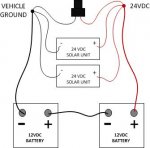DeuceRoadTripper
New member
- 33
- 1
- 0
- Location
- Coleman, WI
M923A2 Battery Relocation Project: This week I have been having some problems with my batteries not charging. I disconnected each of them and charged them manually. Found one of the original batteries was shot and not taking a charge. This caused the whole system to not charge properly. (My Guess) However, this was a huge pain to work under the front seat. So I decided to relocate the entire battery box. Also for the price of the replacement battery; I purchased four new larger amperage batteries. Here is the project:
First, I removed the old batteries from under the seat; disconnected the ground, hot lead and the 12 volt lead. Make sure to label all your leads; especially the 12 volt lead. Then remove the clamps, the vertical tie down bars lay down and fold out. You’re done with these. Pull the foam matt out and the blocks of wood under them. Use some baking soda and warm water with a sponge to neutralize any battery acid collecting in the box. Clean it out to the bottom. I am no longer using the solar charging unit as it was already disconnected when I purchased the vehicle. The two charging units have been removed and an cut the leads to the solar panels and taped them off.



First, I removed the old batteries from under the seat; disconnected the ground, hot lead and the 12 volt lead. Make sure to label all your leads; especially the 12 volt lead. Then remove the clamps, the vertical tie down bars lay down and fold out. You’re done with these. Pull the foam matt out and the blocks of wood under them. Use some baking soda and warm water with a sponge to neutralize any battery acid collecting in the box. Clean it out to the bottom. I am no longer using the solar charging unit as it was already disconnected when I purchased the vehicle. The two charging units have been removed and an cut the leads to the solar panels and taped them off.
























